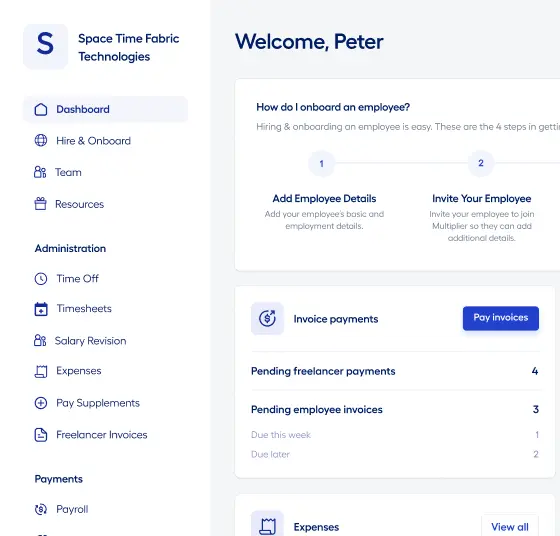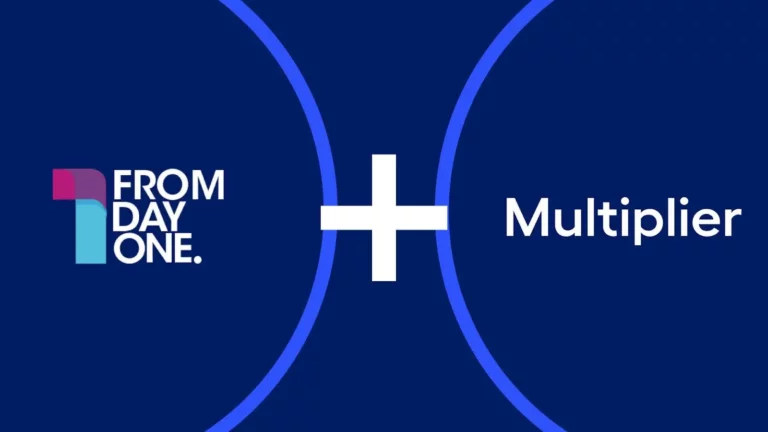International expansion is an exciting prospect for businesses. It unlocks doors to a global marketplace bursting with fresh talent, potential customers, and lucrative trade deals.
However, like any grand expedition into uncharted territory, it can be riddled with complex decisions, bureaucratic hurdles, and cultural nuances to navigate.
One of the most critical choices you’ll face from the get-go is how to structure your business strategy for global growth. Should you establish a branch office, essentially an extension of your home base, or should you create a subsidiary, a separate legal entity in the new market?
While both options allow you to plant your flag overseas, they come with distinct advantages and disadvantages, especially in the realm of legal considerations, global compliance, tax implications, and operational flexibility.
The only way to expertly navigate this critical juncture to propel your global mobility plans in the right direction is through a branch vs. subsidiary duel.
From the contest — and the distinct findings that come out of it — you’ll be well-positioned to make a strategic choice that will define your company’s global growth in the exciting yet challenging realm of international expansion.
Branching Out for Global Growth: Capillaries of The Nerve Center
Think of a branch office as a satellite outpost of your main headquarters. It’s an operational unit established in a separate location to conduct business under the direct supervision of the parent company.
Imagine a bank like Bank of America with branches scattered across the globe.
Each branch functions as an extension of the main office, providing convenient access to customers in different regions, with individual branch managers overseeing day-to-day operations, reporting directly to the head office, and ensuring centralized control.
Advantages
- Reach and brand awareness: It allows you to increase your reach and brand awareness in new markets without the complexities of setting up a separate legal entity.
- Greater control: Since the branch operates under the parent company’s umbrella, you have a direct line of sight into operations and decision-making.
- Simplified setup: Receives benefits from existing administrative structures and compliance expertise of the parent company, streamlining initial setup.
Limitations
- Full liability: The parent company bears full liability for the branch’s actions and debts.
- Limited flexibility: Financials are typically consolidated with the parent company, offering less flexibility in terms of local fundraising or independent financial management.
- Restricted decision-making: Branches may have limited decision-making power, as they often rely on the head office for strategic direction.
The subsidiary: A parent-daughter business strategy
A subsidiary is a separate legal entity established in a foreign market but with a controlling ownership stake held by the parent company. In other words, the parent company has a 51-99% controlling interest in the subsidiary (daughter) company.
That includes companies like Procter & Gamble, which owns numerous subsidiary (daughter) brands like Tide and Oral-B. Each subsidiary operates with a certain degree of autonomy, tailoring its approach to the specific needs of the local market.
Key Takeaway
- If you envision a more substantial venture overseas, or if you’ve already tested the waters with a branch office, a subsidiary might be the next step on your global expansion journey.
Advantages
- Limited liability protection: The parent company is generally not liable for the debts or obligations of the subsidiary (daughter company), shielding your home base from potential risks.
- Operational flexibility: Subsidiaries can establish their own governance structures, maintain separate financial records, and even raise capital locally through stock issuance. This allows them to adapt to local market conditions and make decisions more quickly.
- Market adaptability: Subsidiaries can cultivate a more distinct brand identity, catering to specific preferences of local markets.
Limitations
- Complex setup: Setting up and maintaining a subsidiary involves navigating the legal and regulatory landscape of the foreign country. This can be a complex and time-consuming process, requiring the expertise of local legal and financial professionals.
- Reduced control: Less direct oversight over day-to-day operations by the parent company.
- Potential reputational risk: Subsidiary’s missteps could potentially damage the reputation of the parent company.
Legal and financial considerations: Branch vs. subsidiary
Choosing the right legal and financial structure is a cornerstone of successful international expansion. Let’s explore the key differences between branches and subsidiaries in three crucial areas: legal liabilities, tax obligations, and financial autonomy.
Legal liabilities — shared responsibility vs. limited liability
One of the most significant distinctions between branches and subsidiaries lies in legal responsibilities and liabilities.
A branch operates as an extension of your main company. If a customer sues the branch, it’s essentially suing you directly. This offers control as you have direct oversight, but it also exposes your entire company to legal and financial risks.
In contrast, a subsidiary acts as a separate legal entity. This means if someone sues the subsidiary, your main company is generally protected; the subsidiary is responsible for its own debts and obligations.
This limited liability shield can be a major advantage, potentially saving your headquarters from financial, reputational, and legal repercussions.
Tax obligations — navigating complex global compliance landscapes
Tax implications are another critical factor to consider when choosing between a branch and a subsidiary. Branches are typically taxed in both the host country and the country of the parent company. This can create a complex situation, potentially leading to double taxation on profits.
Subsidiaries, on the other hand, are often treated as independent taxpayers in their host country. This can offer potential tax benefits depending on local laws. However, subsidiaries may also face additional regulations and reporting requirements.
Branch or subsidiary, whichever you choose for international expansion, it’s crucial to consult global compliance tax experts to understand the specific tax implications of host countries.
Financial autonomy — centralized control vs. local flexibility
Branches typically have limited financial independence. Their budgets are often set by the parent company, and they may have restricted access to local financing.
This ensures central control over finances, but it can also limit their ability to adapt to local market conditions or pursue independent growth strategies.
Subsidiaries, on the other hand, enjoy greater financial autonomy. They can establish their own financial structures, maintain separate accounts, and even raise capital locally by issuing stock.
This flexibility allows them to make quicker financial decisions and tailor strategies to the specific needs of the local market. However, increased autonomy also comes with the potential for less oversight from the parent company, which requires careful management.
If you prioritize control and a unified brand image, a branch might be suitable. However, if you seek limited liability, potential tax benefits, and the flexibility to adapt to local markets, a subsidiary might be the better option.
Consulting legal, HR, and finance professionals experienced in international business is highly recommended to ensure you make an informed decision for your global expansion journey.
Market presence and customer perception: branch vs. subsidiary
Let’s explore the strategic differences between branch offices and subsidiaries through the lens of market presence and brand perception.
Brand perception:
- Branch Offices: Think of them like a brand’s identical twins. They wear the same logo, messaging, and slogans as the parent company. This consistency builds trust – customers instantly recognize them as part of the “family.”
- Subsidiaries: They might have a slightly different brand name or style, allowing them to adapt to local preferences. For example, a global burger chain might offer a curry-flavored burger in India or a vegetarian option where meat consumption is lower.
Did you know?
- Over 75% of global businesses will pivot to brand strategy from infrastructure
- ~60% of consumers are likely to purchase from brands with positive impressions
Market presence:
- Branch Offices: Think of them as extensions of the parent company’s nervous system. Decisions are made quickly, and changes can be implemented fast to adapt to market trends. Since they share the parent company’s reputation, customers already know what to expect – a familiar face in a new place. For instance, a bank opening a new branch will likely offer the same services and follow the same policies as its headquarters, ensuring a smooth transition for customers.
- Subsidiaries: These are like independent investors in the family business. They can take calculated risks to enter new markets or diversify the brand’s offerings. This helps spread the risk – if one subsidiary struggles, it doesn’t necessarily impact the entire company. Subsidiaries also operate with some level of autonomy, allowing them to adapt to local market conditions faster. The choice between branch offices and subsidiaries depends on factors like legal requirements, risk tolerance, and the desired level of control. Branch offices are ideal for maintaining brand consistency and quickly reacting to market changes, while subsidiaries offer more flexibility and diversification.
Multiplier: Your International Business Strategy Partner
Whether you choose to open a branch office or establish a subsidiary, Multiplier simplifies the process of building and managing every aspect of your global team.
Here’s how Multiplier streamlines global expansion, regardless of your business expansion:
- Effortless payroll management: Multiplier is your end-to-end solutions platform for global payroll. Our platform handles multi-country wage calculations, ensuring accurate and on-time payments for your employees in over 150 countries. This eliminates the need for you to navigate complex tax regulations and social contributions in each location.
- Compliance made easy: Setting up a branch or subsidiary often involves navigating a maze of local labor laws and tax regulations. Multiplier mitigates this burden by handling all compliance aspects for you. Our team of experts ensures you operate within the legal framework of every country, mitigating risks and potential penalties – saving you valuable time and resources.
- Seamless benefits management: Offering competitive and compliant benefits like ESOPs to your global workforce is crucial for attracting and retaining top talent. Multiplier helps you provide regionally relevant insurance options and manage everything from a single platform. This ensures consistency for your employees and simplifies administration for you.
Multiplier benefits: Cross out blunders as you cross borders
- Reduced administrative burden: Multiplier takes over the heavy lifting associated with global payroll, taxes, and compliance. This frees up your internal HR team to focus on strategic initiatives and employee relations.
- Faster onboarding: Whether you’re hiring talent for a new branch or subsidiary, Multiplier helps you onboard them quickly and compliantly. This allows you to get your international team up and running faster, contributing to your business goals sooner.
- Cost savings: Setting up a separate legal entity in every country you operate in can be expensive. By leveraging Multiplier’s Employer of Record (EOR) solution, you can compliantly hire and onboard international talent and freelancers without establishing a local branch or subsidiary.
Multiplier empowers you to focus on what matters most – building a world-class global team. Our comprehensive suite of services simplifies global expansion, whether you choose the branch office or subsidiary route.
Choosing the Right International Expansion Route: Branch vs. Subsidiary for Global Growth
The decision between a branch and a subsidiary for international expansion hinges on several key factors. Understanding these factors and aligning them with your long-term goals is crucial for making the right choice.
- Business activity and target market: The nature of your business and the specific market you’re entering play a big role. Branches are ideal for extending your existing brand and customer reach. Subsidiaries offer more flexibility to adapt to local preferences and regulations.
- Risk management: Branches are generally considered less risky as they’re an extension of the parent company. Subsidiaries, while offering the potential for higher growth, also expose you to greater financial and legal risks.
- Operational control: Branches offer close control as they operate under the parent company’s direct supervision. Subsidiaries allow for more autonomy but require a robust system for maintaining oversight and compliance.
- Legal and tax considerations: Legal and tax regulations vary by country. Consulting a local business setup specialist can ensure you navigate these complexities effectively, whether you choose a branch or a subsidiary.
Ultimately, the “right” choice depends on your long-term vision.
If you prioritize close control and brand consistency then opening up a branch could be the optimal mode of entry into international markets. Conversely, the signs of a greater growth potential and local market flexibility point in the direction of a subsidiary.
You should carefully weigh these factors and seek expert guidance to ensure your expansion journey is a success.







